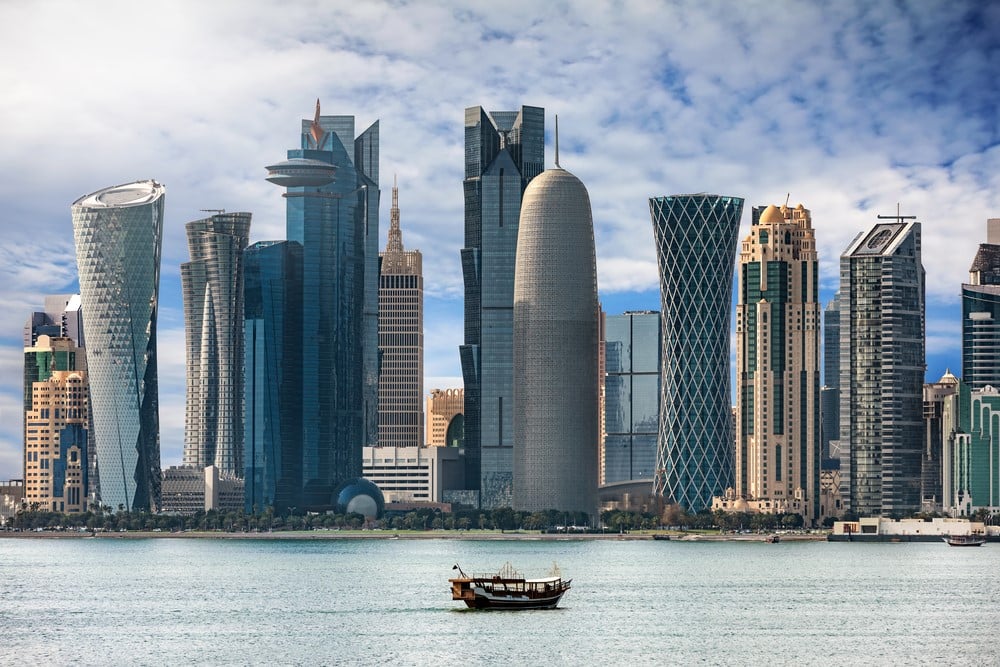
Data show Qatari funding of U.S. universities over 10 years exceeds $6.25 billion, and during 2024 alone, Qatar contributed over $500 million to American educational institutions.
By Gregg Roman, Middle East Forum
In the early days of the second Trump administration, while America focuses on domestic priorities and global challenges, Qatar is executing a calculated influence campaign within America’s power centers.
Leveraging its immense wealth and strategic position, Qatari envoys and lobbyists are actively cultivating ties, shaping policy discussions, and seeking favor with key decision-makers throughout the nation.
This influence operation represents a sophisticated evolution of Qatar’s previous lobbying efforts. Unlike traditional diplomatic engagement, Qatar’s strategy involves a multi-layered approach that targets influential Americans across political, economic, and cultural spheres.
Qatar has refined its influence strategy to align with current American priorities.
Understanding the value the second Trump administration places on direct business relationships and tangible economic benefits, Qatari officials have tailored their approach accordingly.
They emphasize potential investment opportunities, strategic partnerships, and Qatar’s role hosting Al Udeid Air Base, America’s largest Middle East military installation.
Recent investigations reveal that Qatar has invested approximately $40 billion in American institutions across various sectors, an undercount that includes only documented transactions.
Qatar’s primary influence weapon remains its strategic financial investments. American businesses and real estate firms have benefited from over $33.4 billion in Qatari investment, while lobbying, PR, and legal firms have collected more than $71.9 million.
Think tanks, nonprofits, and K-12 educational programs have received at least $48.5 million. The Middle East Institute received significant funding from Qatar while producing analysis generally favorable to Qatari interests.
The Brookings Institution famously accepted $14 million, raising questions about the independence of its Middle East analysis.
Beyond these documented investments, Qatar has cultivated an extensive network of informal influencers — former government officials, business leaders, and media personalities — who promote Qatari interests without formal disclosure requirements.
This shadow lobbying creates a perception of independent support for Qatar’s positions while obscuring the financial relationships that often underpin these advocacy efforts.
Qatar’s influence campaign extends well beyond the professional sphere. A recent report exposed anti-Israel bias in American K-12 classrooms linked to secretive Qatari funding, prompting calls for a federal investigation and stricter foreign funding disclosure requirements in education.
Data show Qatari funding of U.S. universities over a 10-year period exceeds $6.25 billion. During just 2024 alone, Qatar contributed over $500 million to American educational institutions.
Qatar maintains a strong presence in American higher education through its Education City in Doha, where six U.S. universities operate campuses.
Qatar has also made inroads with U.S. municipalities. American mayors from cities including Atlanta, Montgomery, Columbia, and Rochester Hills recently traveled to Qatar seeking investment opportunities for their cities.
This direct outreach to local governments provides another pathway for Qatari influence while evading federal oversight.
Perhaps most troubling is Qatar’s ongoing support for extremist organizations while simultaneously presenting itself as a partner in counterterrorism efforts.
Recently uncovered social media posts by Qatar’s defense minister proclaimed, “We are all Hamas,” during an earlier Israel-Hamas conflict, undermining Qatar’s claims of neutrality.
Rabbi Pini Dunner, leading protests outside Qatari-owned properties in Los Angeles and London, revealed that a Jewish individual working for the Qatari royal family attempted to dissuade him from protesting.
Qatar’s influence campaigns have tangible policy outcomes.
Despite these concerning ties, the U.S. State Department recently approved a $1.96 billion military sale to Qatar, including MQ-9B remotely piloted aircraft and related equipment.
The continued success of Qatar’s initiatives raises important questions about transparency in foreign lobbying and funding.
Greater scrutiny is needed regarding Qatar’s financial activities in the United States, particularly its funding of educational institutions and think tanks that shape public discourse on Middle East policy.
For American policymakers, the priority must be greater transparency around foreign funding and influence operations. Without such measures, Qatar’s checkbook diplomacy will continue to shape American policy in ways that may not serve the national interest.
Thankfully, lawmakers are waking up. The Arkansas General Assembly recently introduced legislation targeting Qatar’s academic partnership with Arkansas State University.
Similarly, congressional efforts such as the Deterrent Act aim to increase transparency in foreign funding to universities, though Qatar is not currently designated as a “country of concern.”
As Washington formulates its approach to the Middle East, recognizing Qatar’s dual role — as both strategic partner and problematic actor — remains essential.
The monarchy’s significant financial investments in American institutions demand heightened scrutiny to ensure policy decisions reflect American interests rather than those purchased by a foreign power.
The post Qatar’s quiet campaign: How Doha is buying America appeared first on World Israel News.